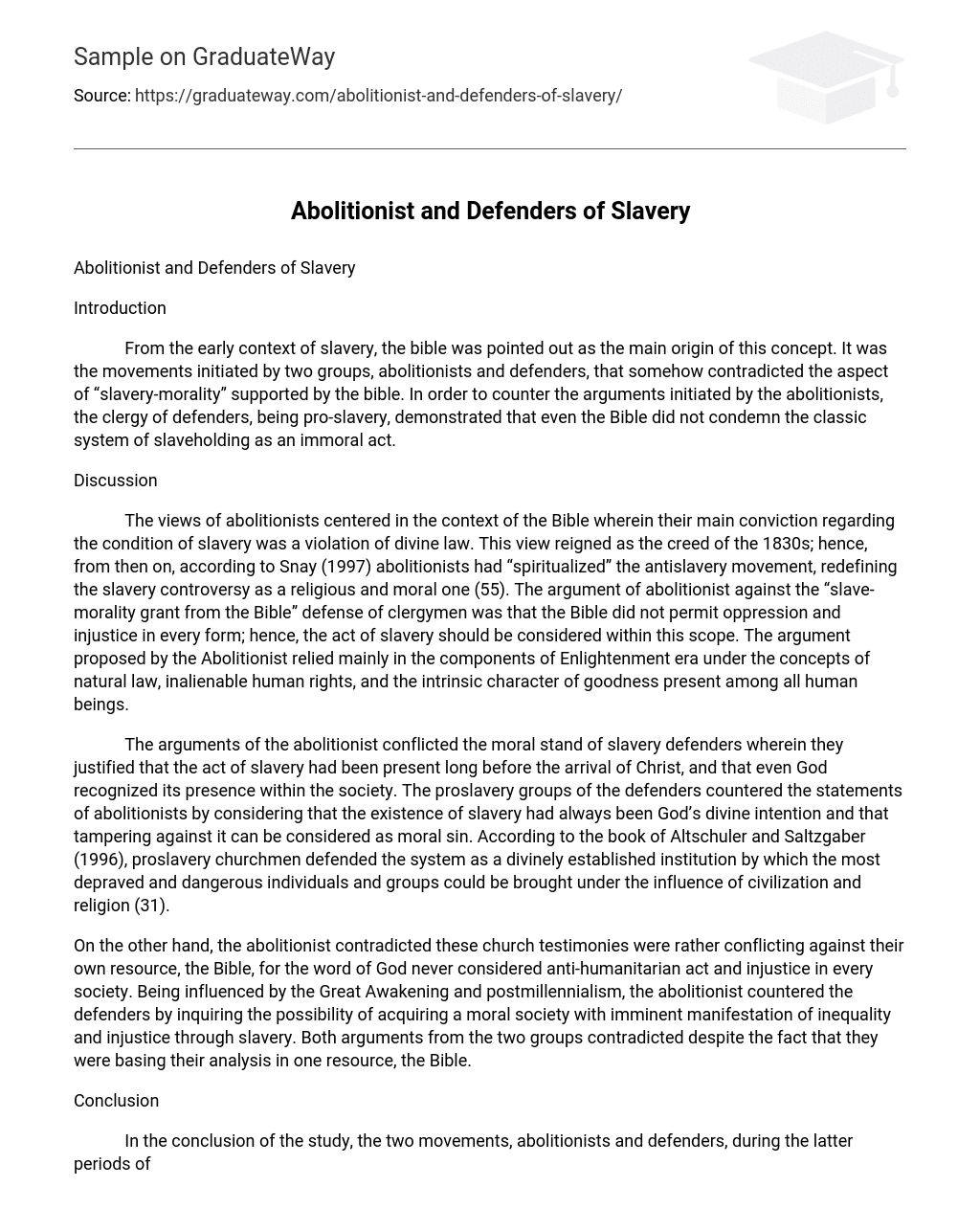Introduction
From the early context of slavery, the bible was pointed out as the main origin of this concept. It was the movements initiated by two groups, abolitionists and defenders, that somehow contradicted the aspect of “slavery-morality” supported by the bible. In order to counter the arguments initiated by the abolitionists, the clergy of defenders, being pro-slavery, demonstrated that even the Bible did not condemn the classic system of slaveholding as an immoral act.
Discussion
The views of abolitionists centered in the context of the Bible wherein their main conviction regarding the condition of slavery was a violation of divine law. This view reigned as the creed of the 1830s; hence, from then on, according to Snay (1997) abolitionists had “spiritualized” the antislavery movement, redefining the slavery controversy as a religious and moral one (55). The argument of abolitionist against the “slave-morality grant from the Bible” defense of clergymen was that the Bible did not permit oppression and injustice in every form; hence, the act of slavery should be considered within this scope. The argument proposed by the Abolitionist relied mainly in the components of Enlightenment era under the concepts of natural law, inalienable human rights, and the intrinsic character of goodness present among all human beings.
The arguments of the abolitionist conflicted the moral stand of slavery defenders wherein they justified that the act of slavery had been present long before the arrival of Christ, and that even God recognized its presence within the society. The proslavery groups of the defenders countered the statements of abolitionists by considering that the existence of slavery had always been God’s divine intention and that tampering against it can be considered as moral sin. According to the book of Altschuler and Saltzgaber (1996), proslavery churchmen defended the system as a divinely established institution by which the most depraved and dangerous individuals and groups could be brought under the influence of civilization and religion (31).
On the other hand, the abolitionist contradicted these church testimonies were rather conflicting against their own resource, the Bible, for the word of God never considered anti-humanitarian act and injustice in every society. Being influenced by the Great Awakening and postmillennialism, the abolitionist countered the defenders by inquiring the possibility of acquiring a moral society with imminent manifestation of inequality and injustice through slavery. Both arguments from the two groups contradicted despite the fact that they were basing their analysis in one resource, the Bible.
Conclusion
In the conclusion of the study, the two movements, abolitionists and defenders, during the latter periods of 19th century had arguments regarding the morality of implementing slaveholding within the society. From the abolitionist’s perspective, they justified their anti-slavery reform through the Bible’s disagreement over injustice and inequality within the society. Meanwhile, the defenders countered their claims by basing in the Bible as well with their statement that slavery had always been divine intention.
Works Cited
Altschuler, Glenn C., and Jan M. Saltzgaber. Revivalism, Social Conscience, and Community in the Burned-Over District. Cornell University Press, 1996.
Snay, Mitchell. Gospel of Disunion: Religion and Separatism in the Antebellum South. UNC Press, 1997.





